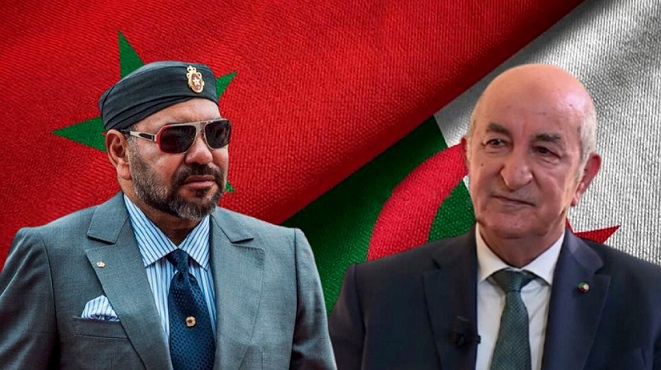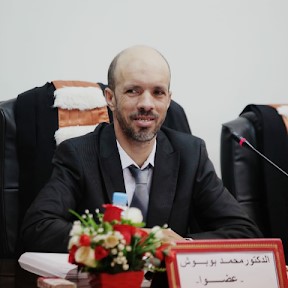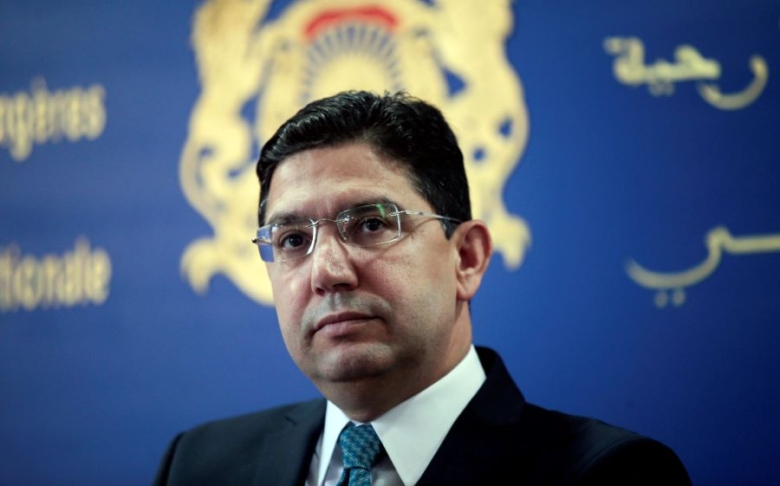In the face of Algeria's arrogant behavior in its neighbourhood with the Kingdom of Morocco and the clear threat this poses to the security of our country, the Moroccan political leadership is keen to adopt strategic patience for self-defense. Some may see patience and deliberation as a negative behavior based on waiting and surrendering to fate, and we believe that patience means showing maximum restraint in the face of provocations practiced by the other party, while investing time in changing the equation on the ground and enhancing self-strengths. In other words, the policy of strategic patience means trying to avoid the option of war as much as possible, but without excluding this option, which means preparing for it as a last resort and within the framework of what is known as just war and exercising the right of self-defense guaranteed by international conventions, laws, morals and monotheistic religions.
The concept of "strategic patience
"Strategic patience" in foreign policy refers to a diplomatic approach where a country exercises restraint and perseverance in dealing with international challenges and conflicts. It involves carefully assessing situations, avoiding impulsive actions, and maintaining a long-term perspective to achieve desired outcomes without rushing into immediate responses or escalations.
A state can practice "Strategic patience" in its foreign policy through several key strategies:
1. Assessment and Analysis**: Conduct a thorough assessment of international situations, including risks, opportunities, and long-term implications. Analyze the potential outcomes of different actions before making decisions.
2. Dialogue and Diplomacy**: Prioritize diplomatic channels for resolving conflicts and addressing issues. Engage in dialogue with other countries to find common ground and seek peaceful solutions.
3. Building Alliances**: Strengthen alliances with like-minded countries to support common goals and share the burden of addressing global challenges. Collaborate with partners to achieve mutual interests.
4. Avoiding Provocative Actions**: Refrain from engaging in provocative actions that could escalate tensions or lead to conflicts. Exercise restraint and moderation in responses to international events.
5. Long-Term Planning**: Develop a coherent long-term foreign policy strategy that aligns with the state's interests and values. Set clear objectives and milestones to guide decision-making over time.
6. Patience and Persistence**: Maintain a patient and persistent approach in pursuing foreign policy goals. Understand that achieving significant diplomatic outcomes may require time and sustained effort.
7. Adaptability**: Be flexible and adaptable in response to changing circumstances while staying committed to long-term strategic objectives. Adjust strategies as needed to address evolving international dynamics.
By incorporating these elements into its foreign policy approach, a state can effectively practice "Strategic patience" and navigate complex international relations with a focus on achieving sustainable and beneficial outcomes.
This approach aims to achieve strategic goals through calculated and thoughtful decision-making in the realm of international relations.The concept of "strategic patience " was first coined by US President Barack Obama, who mentioned it in his introduction to the US National Security Strategy document issued in February 2015, in which he stressed that "the challenges we face require strategic patience and perseverance." Obama was referring to a range of challenges and goals specific to the United States as a great power: democracy and human rights, energy security, climate and global warming, nuclear security, cybersecurity, extreme poverty, and sustainable development. Etcetera.
The United States used a strategy of strategic patience in its dealings with North Korea, maintaining a policy of engagement while keeping the option of military action open. China has also used this strategy in its dealings with Taiwan, where it waits for the right time to reunify the island with the mainland.
Morocco's approach to the policy of strategic patience
Developments in positions and events have proven that the conflict, in its depth, is a conflict between Morocco and Algeria, which chose to adopt the option of opposing the territorial integrity of Morocco in the hope of achieving strategic and ideological gains, within the framework of competition for sovereignty and leadership in the Arab Maghreb region.
While it reiterated that it has no territorial claims in the region, it will impose itself indirectly through the Polisario Front, which Libya helped establish, and which, with the developments of this file, will turn into a tool in the hands of Algeria to impose itself as a party interested in the repercussions of the issue, by insisting on Promoting the discourse of self-determination for the Sahrawi people.
The hostile policy of the Algerian regime towards Morocco was not limited to one aspect, but included all aspects of relations between states. Despite the fact that the political aspect is the most prominent, as it primarily affects the issue of the Moroccan Sahara as a crisis that has exceeded half a century due to the Algerian regime's continuous support for the Polisario Front, and its support for the separatist proposal, despite the most realistic Moroccan proposals, most notably the autonomy proposal, as the most important and latest form of the right to self-determination, submitted to the United Nations on April 11, 2007 to resolve the crisis, under which Morocco grants the inhabitants of the southern provinces of the Kingdom independence in managing their affairs in light of Moroccan sovereignty, the Algerian hostility to the Kingdom took other forms and included the economic, sports and cultural propaganda aspect, to go far beyond that and Morocco becomes the subject of repeated accusations that are not based on argument or evidence, starting with his accusation of extraditing the " Algerian mujahid Prince Abdelkader " to the French authorities, through accusing him of supporting Islamic movements working against the Algerian government in the last decade of the last century, and ending with accusing him of smuggling drugs to Algeria.
The concept of strategic patience in Moroccan strategic thought means dealing with crises, and not rushing with an ideological position based on a preconceived orientation or decision, and building decisions according to estimates of the national interest (which mainly sets its eyes on internal national construction), without ignoring the interests of others as well, based on the belief in the priority of a peaceful settlement, and confidence in the ability to move that overturns equations at the crucial time, and in cases of misunderstanding or miscalculation.
The Kingdom of Morocco has followed this approach in all the crises it has experienced during the past years, and it has prevented it from entering into sharp confrontations with its opponents, in each of El Guerguarat, the Algerian diplomatic boycott, South Africa's provocations and its opposition to territorial integrity, in line with the conviction that any broad intervention will be costly or a military "dilemma", and what can be achieved through this tool, strategic patience is sufficient for it, this trend may have achieved positive results sometimes, but its status as an option, regardless of the depth of the challenges, reduces Its relative importance, and gives opposing forces an opportunity to employ it in a way that is in line with their goals to embarrass the Moroccan state. Now the political leadership is aware of the importance and value of strategic patience in the methodology of dealing gradually with crises in light of an accurate reading of the international and regional situations crowded with many complex and intertwined issues. All these require giving the decision-maker the widest space for movement and maneuver to determine the appropriate starting point to move towards the desired goal by understanding and studying the regional and global climate.
Foreign Minister Nasser Bourita also stressed the principle of strategic patience, saying that Morocco has decided not to react to the unilateral decisions pursued by Algerian diplomacy for some time.
"Morocco has decided not to react to the unilateral decisions of Algerian diplomacy," Bourita said in an interview with France 24 on Sunday, June 6, 2022, stressing that it "stopped following the statements of Algerian diplomacy some time ago because of the many contradictions that this speech carries."
The foreign minister added that King Mohammed VI's directives "go in the direction of non-escalation and even non-interaction with the Algerian discourse."
He pointed out that "Morocco will not change the geographical reality between the two countries," pointing out that "Algeria severed its relations with Morocco not because of Israel as it claims, but there are 6 points that explained the step of severing political relations, including the 1963 war, and the issue of the Moroccan Sahara." "If Algeria takes any unilateral measures in this regard, it is its right, but Morocco's positions have been clear for a long time, because it is looking for factors of unity more than division," he explained. "Morocco supports UN Security Council resolutions on the Sahara and is satisfied about that, but it is Algeria that rejects its outcomes."
Rabat achieved a moral victory over Algeria, and it seemed that the strategic patience commonly used by some politicians in the world, starting with former US President Barack Obama, may turn into an independent theory in the political literature of Moroccan diplomacy when the clouds on the state increase and the tools of its power gradually rise, and the surrounding situation seems full of liquidity and full of challenges.
Morocco tends to be conservative by virtue of its strategic culture, refusing to engage in foreign conflicts for reasons related to the rejection of the principle of external interference in the affairs of independent states and the royal leadership's view of war as the most harmful means of achieving national interests. Self-control is a rational, conscious and wise choice that is far from recklessness and gambling with political decisions.
*Assistant Professor in international relations, Mohammed First University, Oujda, Morocco







